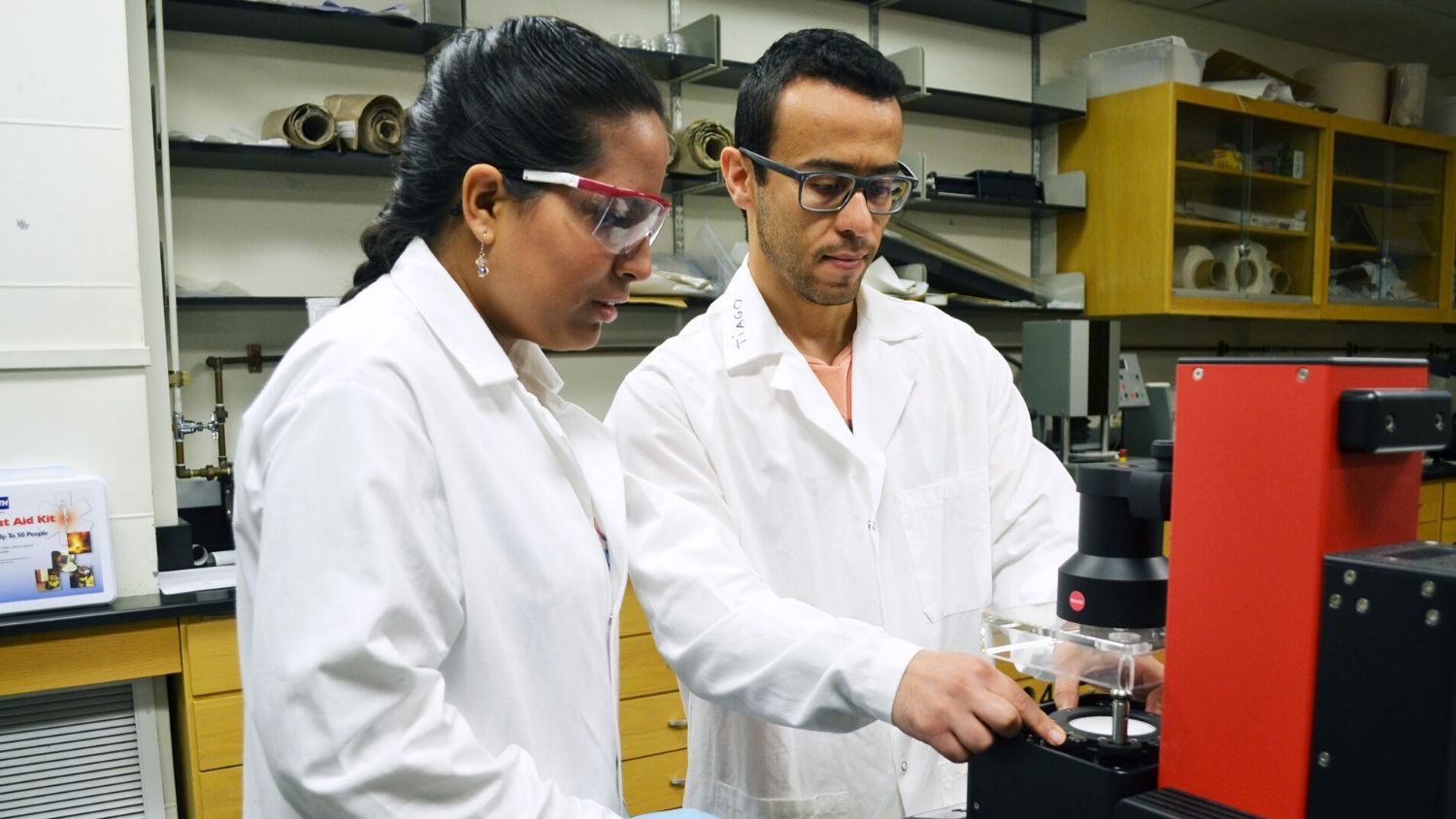Tiago de Assis, Ph.D. – Class of ’19

Tiago de Assis, Ph.D. in Forest Biomaterials, began his post-doctoral career with the international chemical industry giant Kemira in the Summer of 2019. He will work out of Atlanta, GA in the pulp and paper division. Tiago holds a B.S. in Chemical Engineering from Federal University of Sao Carlos, Brazil, a M.S. in Forest Biomaterials, focused on Sugarcane Bioenergy and Biorefineries and boasts 8 years of prior work experience in manufacturing and engineering.
We asked Tiago about his experience as a graduate student in Forest Biomaterials.
“The Forest Biomaterials program is a strategic blend of basic science, applied technology and business development and this blend is why I’ve been successful.” Tiago says. He explains, “Graduate students learn about how to apply fundamental science to transform innovative ideas into basic technologies without missing the business perspective. The students learn how to bridge the gap between basic science and product commercialization. During the program, students have the opportunity to develop research and business skills that are highly desirable to innovative companies.”
“My future employer, Kemira, is focused on global megatrends, such as urbanization, digitalization and growing middle class and how they are shaping the pulp and paper industry.”. Kemira states that, “tissue in particular is driven by the end-user preferences for softness, strength, absorbency, flexibility, and sustainability.” Tiago believes that further research into tissue properties will shape not only the product’s performance, but the prices consumers see on Amazon and at the grocery store.

Tiago’s doctoral research focused on “ systematically evaluating the impact of different cellulosic fibers on the performance (e.g. softness, absorbency, strength) and cost of tissue paper. In other words, this research contributes to a better understanding about how different cellulosic fibers (e.g. wood, non-woods, recycled) can be manipulated to optimize tissue performance and manufacturing costs.”
Further, this research, “can not only help tissue producers but it will also benefit consumers. A better utilization of cellulosic fibers would improve the profitability of tissue producers which could be translated in lower shelf price and improved product performance.”
Here is what Tiago had to say about his experiences both in the United States and as a graduate student at NC State:
What challenges did you face as a graduate student?
Graduate school is not an easy and clear pathway. It is a slow and cloudy self-learning process. The graduate student has to quickly learn how to conciliate classes, side projects, and thesis research in an efficient way. It is important for the graduate student to create a work habit where time and resources are wisely used to maximize the research output. This seems to be obvious, however, in many situations, the graduate research boundaries are not so well defined, and the student may get lost working on tasks that will not bring real research value.
What is your advice to future graduate students?
My suggestions would be, read as much as possible in the first years. Before execution, plan your experiments well. Publish your results as soon as possible, and of course, stay connected with your advisors at all times.
What is your favorite memory at NC State?
I will never forget when our basketball team beat DUKE in PNC arena. I got student tickets for the 2015 game and it was really cool to see the crowd rushing the court after the game.
What have you enjoyed most about studying in the United States?
I really enjoyed my time in the US so far. Burgers are the best, and I became a fan of college football and basketball. I learned a lot with the diverse community of professors and students in the Forest Biomaterials Department, and I made life-long friends.
- Categories: